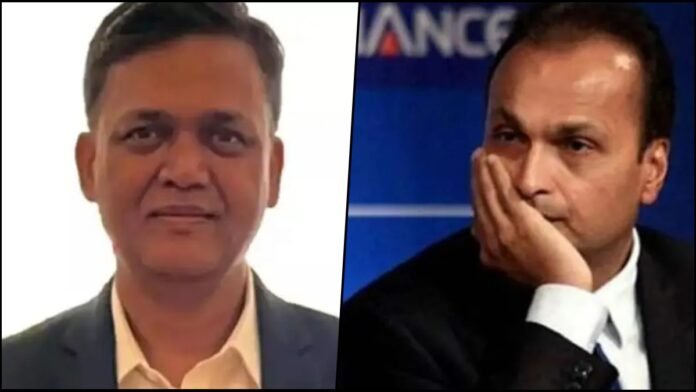
Key Points:
- Enforcement Directorate arrested Ashok Kumar Pal, CFO and Executive Director of Reliance Power, on Friday night (October 10, 2025) from the ED’s Delhi office
- Pal allegedly played a “central role” in orchestrating a fraudulent bank guarantee worth ₹68.2 crore submitted to Solar Energy Corporation of India (SECI)
- The total money laundering case involves alleged loan fraud and fund diversion exceeding ₹17,000 crore by multiple Anil Ambani group companies
- Yes Bank loan diversion case involves approximately ₹3,000 crore illegally diverted between 2017-2019 through a suspected quid pro quo arrangement
- Reliance Communications (RCom) fraud classified by SBI totals over ₹14,000 crore, with the account declared fraudulent in June 2025
- CBI filed chargesheets in September 2025 against Anil Ambani, Yes Bank founder Rana Kapoor, and his family for fraudulent transactions worth ₹2,797 crore
- Pal has over 25 years of experience and served as Reliance Power’s CFO for more than seven years
- ED conducted massive raids on July 24 covering 35 premises, 50 companies, and 25 individuals linked to the Anil Ambani Group
Mumbai: The Enforcement Directorate has delivered a crushing blow to the embattled Anil Ambani Group by arresting Ashok Kumar Pal, Chief Financial Officer and Executive Director of Reliance Power Limited, in connection with a sprawling money laundering investigation involving alleged bank loan fraud and fund diversion exceeding ₹17,000 crore. Pal, considered a close confidant of industrialist Anil Ambani, was taken into custody on Friday night after several hours of intensive questioning at the ED’s Delhi office under provisions of the Prevention of Money Laundering Act (PMLA).
Central Role in Fake Bank Guarantee Racket
The ED alleges that Pal orchestrated a sophisticated fraud involving a fake bank guarantee worth ₹68.2 crore submitted to the Solar Energy Corporation of India (SECI), marking a significant development in the expanding probe against the Anil Dhirubhai Ambani (ADA) Group. According to ED investigators, Pal facilitated the appointment of Biswal Tradelink Pvt Ltd, an obscure firm with no credible operational background, to issue the fraudulent guarantee as part of a broader scheme involving fake invoicing, bogus companies, and spoofed email domains designed to present forged financial instruments as legitimate.
The fraudulent bank guarantee was allegedly routed to support a transaction involving Reliance NU BESS Private Limited (formerly Maharashtra Energy Generation Limited), a subsidiary of Reliance Power. Investigation revealed that Reliance Power paid ₹5.4 crore to Biswal Tradelink for providing this fake bank guarantee, which used a spoofed domain s-bi.co.in designed to closely mimic the genuine State Bank of India domain. The ED recovered communications showing the fraudsters actively used Telegram’s disappearing message feature to evade surveillance and maintain operational secrecy.
Pal was produced before a special court in Delhi on Saturday morning, where the ED is expected to seek his custody for further interrogation and confrontation with other accused individuals in the case. According to the company website, Pal possesses over 25 years of professional experience and served as CFO of Reliance Power for more than seven years, making him a key figure in the group’s financial operations.
₹17,000 Crore Web of Financial Irregularities
The arrest comes as part of a massive money laundering investigation into alleged systematic financial irregularities and misuse of collective bank loans totaling over ₹17,000 crore taken by several Anil Ambani group companies, including Reliance Infrastructure (R Infra), Reliance Communications (RCom), Reliance Home Finance Limited (RHFL), and Reliance Commercial Finance Limited (RCFL). The ED’s probe, which stems from FIRs filed by the Central Bureau of Investigation and inputs from regulatory bodies including SEBI, National Housing Bank, National Financial Reporting Authority, and Bank of Baroda, has uncovered evidence suggesting a “well-planned and thought-out scheme” to siphon public funds by defrauding banks, investors, and public institutions.
At the center of the investigation are two major allegations that collectively account for the massive ₹17,000 crore fraud. The first involves the illegal diversion of approximately ₹3,000 crore in loans disbursed by Yes Bank to Anil Ambani group companies between 2017 and 2019. The ED suspects an illegal quid pro quo arrangement wherein Yes Bank promoters allegedly received payments from privately-held concerns just before sanctioning loans to financially stressed ADA Group companies.
The preliminary investigation revealed alarming irregularities in the Yes Bank lending process, including loans approved and released on the same day applications were made, transfers executed even before official “approval,” backdated documentation, loans channeled to borrowers with common addresses and directors, weak or unverified financials, and the practice of “loan evergreening” using fresh loans to repay older ones. In some instances, loans were sanctioned before due diligence was completed, with documentation fabricated later to maintain appearances.
RCom Fraud: The Larger Component
The second and significantly more serious allegation relates to Reliance Communications (RCom), which accounts for over ₹14,000 crore of the total fraud amount. The State Bank of India classified RCom’s loan account and its promoter, Anil Ambani, as “fraud” on June 13, 2025, in accordance with RBI’s Master Directions on Fraud Risk Management. SBI’s credit exposure in RCom includes fund-based principal outstanding of ₹2,227.64 crore along with accrued interest and expenses, plus non-fund-based bank guarantees worth ₹786.52 crore.
The Bombay High Court on October 7, 2025, upheld SBI’s order classifying Anil Ambani and Reliance Communications’ accounts as fraud, ruling that the bank’s decision was “reasoned” and contained “no infirmity” or legal flaws. The court’s validation of the fraud classification adds judicial weight to the investigation and significantly strengthens the ED’s case against the ADA Group.
Investigation revealed that Reliance Infrastructure took a haircut of ₹5,480 crore, receiving only ₹4 crore in cash, while the remaining ₹6,499 crore was settled through assignment or transfer of assets, primarily in certain power distribution companies (Discoms). These Discoms have had no business operations for several years and remain non-operational, meaning there are “zero chances of recovery” of this substantial amount. Additionally, Reliance Communications allegedly defrauded Canara Bank of more than ₹1,050 crore, and undisclosed foreign bank accounts and assets are also under investigation.
Curious Case of ‘C Company’ and ₹10,000 Crore Diversion
One of the most intriguing aspects of the investigation involves an entity referred to as “C Company,” an undisclosed related party allegedly used to route funds without proper disclosure to regulators or investors. According to the ED’s preliminary findings, Reliance Infrastructure allegedly diverted approximately ₹10,000 crore through this mysterious entity in what investigators describe as a systematic scheme to obscure the true destination of borrowed funds.
Loans extended by RHFL and Reliance Commercial Finance Ltd were allegedly routed to various group companies and shell firms, completely bypassing regulatory norms and creating a false impression of loan performance through the practice of evergreening. Senior ED officials have indicated that loans were onward lent on the very day of sanction, often to firms sharing common addresses, directors, and lacking independent operational existence.
CBI Files Chargesheets Against Ambani and Kapoor
In a parallel development, the Central Bureau of Investigation filed chargesheets in September 2025 in two criminal cases linked to fraudulent transactions between Anil Ambani’s group companies and Yes Bank, including entities controlled by former Yes Bank CEO Rana Kapoor’s family. The charge sheets, submitted to a special court in Mumbai on September 18, allege a conspiracy between Rana Kapoor and Anil Ambani resulting in wrongful loss of ₹2,797 crore to Yes Bank.
CBI investigations revealed that Yes Bank, under Kapoor’s approval as CEO, invested approximately ₹2,045 crore in non-convertible debentures and commercial debt papers issued by Reliance Commercial Finance Ltd (RCFL), and ₹2,965 crore in similar instruments of Reliance Home Finance Limited (RHFL) during 2017. These massive investments were made despite Care Ratings placing the Anil Dhirubhai Ambani (ADA) Group “under watch” due to serious concerns over declining financial standing and deteriorating credit quality.
The chargesheet names Anil Ambani, Rana Kapoor, his wife Bindu Kapoor, and daughters Radha Kapoor and Roshni Kapoor, along with RCFL, RHFL (now Authum Investment & Infrastructure Ltd), and six companies owned by the Kapoor family RAB Enterprises Pvt Ltd, Imagine Estate Pvt Ltd, Bliss House Pvt Ltd, Imagine Habitat Pvt Ltd, Imagine Residence Pvt Ltd, and Morgan Credits Pvt Ltd. According to the CBI, Rana Kapoor abused his position as CEO to direct substantial public funds from Yes Bank into financially distressed ADA Group companies, while his family-run firms received massive loans from ADA companies in return a classic quid pro quo arrangement.
The CBI findings showed that funds invested by Yes Bank in RCFL and RHFL were subsequently siphoned through multiple layers, indicating systematic diversion of public money. Additionally, the investigation uncovered that Reliance Mutual Fund invested ₹2,850 crore in AT-1 bonds (perpetual fixed deposits) of Yes Bank for suspected quid pro quo, and these bonds were eventually written down, causing the invested money, belonging to public mutual fund investors, to be effectively siphoned off.
Anil Ambani Already Questioned, Banks Under Scrutiny
The ED had already summoned Reliance Group Chairman Anil Ambani for questioning in this case, with the industrialist appearing before ED investigators on August 5, 2025. Sources indicate that during his interrogation, Anil Ambani told the ED he had no knowledge of several of the alleged fraudulent transactions and loan disbursals, and requested a week to verify the details presented by investigators. The ED is likely to call him again for further questioning as the investigation progresses and new evidence emerges.
In a significant development demonstrating the investigation’s comprehensive scope, the ED has sought detailed information from 12 to 13 banks regarding their due diligence processes when sanctioning large loans to ADA Group companies. The agency has specifically requested documentation from major lenders, including State Bank of India, ICICI Bank, HDFC Bank, Axis Bank, Bank of Baroda, and others, about the kind of credit assessment and due diligence carried out before approving loans to entities like Reliance Housing Finance, Reliance Communications, and Reliance Commercial Finance.
The ED’s inquiries to banks have focused on several red flags that should have triggered enhanced scrutiny, including same-day loan approvals and disbursements, poor or missing essential documentation, routing of funds to shell entities with no genuine business operations, use of common directors and addresses across multiple borrowing entities, and the suspicious practice of loan evergreening. Banks are being questioned about why these warning signs did not prevent the sanctioning of such massive loans to what were clearly financially distressed companies.
Massive July Raids Precede Latest Arrest
Pal’s arrest follows a large-scale enforcement operation conducted by the ED on July 24, 2025, during which the agency simultaneously searched 35 premises targeting 50 companies and over 25 individuals linked to the Reliance Anil Ambani Group (RAAGA). During these extensive raids, ED officials recovered large volumes of incriminating documents and substantial digital evidence that, according to agency sources, revealed a “well-planned and thought-out scheme” to siphon public funds by systematically defrauding banks, investors, and public institutions.
Before Pal’s arrest, the ED had already made one arrest in the fake bank guarantee case. Partha Sarathi Biswal, Managing Director of Biswal Tradelink Pvt Ltd, was arrested on August 2, 2025. Biswal’s company allegedly charged an 8% commission for issuing fake bank guarantees and operated a network of shell companies designed to provide forged financial instruments to corporate clients. The ED recovered evidence showing that Biswal Tradelink used sophisticated methods, including creating spoofed email domains and leveraging encrypted communication platforms to avoid detection.
Following the raids, the ED has also summoned and questioned several other senior executives of the Reliance Group, including former group CFO Amitabh Jhunjhunwala and long-time Ambani associate Sateesh Seth. The agency has sent notices to nearly 20 public and private sector banks requesting comprehensive documentation on credit assessments performed before loan sanctioning, indicating the investigation’s expansive reach across India’s banking sector.
Financial Troubles Mount for Anil Ambani Group
This ED action represents another devastating blow to the Anil Ambani Group, which has been struggling with severe financial difficulties for several years. The arrest of such a senior executive, especially the CFO who would have intimate knowledge of all financial transactions and strategies, signals that the investigation is reaching deeper into the group’s core management structure and may target additional senior officials.
The timing of Pal’s arrest is particularly significant as it demonstrates the ED’s determination to pursue accountability at the highest levels of corporate governance within the ADA Group. As CFO and Executive Director of Reliance Power, Pal would have been responsible for overseeing all major financial decisions, compliance with regulatory requirements, and ensuring proper utilization of borrowed funds, making his alleged involvement in fraudulent activities especially serious from both legal and corporate governance perspectives.
The Reliance Group has maintained that “the company and its subsidiaries acted bona fide and have been a victim of fraud,” and has stated that due disclosures have been made to stock exchanges while a criminal complaint was lodged with the Delhi Police. However, the ED’s arrest of a senior CFO contradicts this narrative and suggests agency investigators believe key company officials were active participants rather than victims in the alleged fraud schemes.
Role of Yes Bank Under Scrutiny
The role of Yes Bank, including its then-promoter and CEO Rana Kapoor, remains under intense scrutiny as investigators work to unravel the complex web of transactions between the bank and ADA Group companies. The ED suspects that the relationship between Yes Bank’s leadership and Anil Ambani’s group went far beyond normal banker-borrower dynamics and involved a deliberate conspiracy to misuse public funds deposited in the bank.
Evidence gathered by investigators suggests that Yes Bank promoters allegedly received funds in their companies shortly before loans were sanctioned to ADA Group entities, establishing a timeline that points to quid pro quo arrangements rather than arm’s-length banking transactions. This alleged pattern of reciprocal financial benefits flowing between Yes Bank’s promoter family and the Ambani group forms a central pillar of both the ED’s money laundering case and the CBI’s corruption charges.
The investigation has also flagged Reliance Mutual Fund’s investment of ₹2,850 crore in Yes Bank’s Additional Tier-1 (AT-1) bonds essentially perpetual fixed deposits, which were eventually written down to zero, causing massive losses to public mutual fund investors. Investigators are examining whether this investment was part of the broader quid pro quo arrangement and whether retail investors’ money was deliberately put at risk to benefit the bank and maintain the flow of credit to stressed ADA Group companies.
Implications for Corporate Governance and Banking Sector
The expanding investigation into the Anil Ambani Group raises profound questions about corporate governance standards, banking sector due diligence, and regulatory oversight in India’s financial system. The scale of alleged fraud, ₹17,000 crore across multiple companies and involving numerous banks, suggests systematic failures at multiple levels of financial supervision and corporate accountability.
The case highlights how financially stressed corporate groups can allegedly exploit relationships with bank promoters, use complex corporate structures including shell companies and undisclosed related parties, employ sophisticated techniques like loan evergreening to mask deteriorating asset quality, and divert public funds through multiple layers to obscure the money trail. These alleged tactics, if proven, represent a masterclass in financial fraud that regulators and law enforcement agencies will need to study carefully to prevent similar schemes in the future.
For the banking sector, the investigation serves as a stark reminder of the critical importance of robust credit appraisal processes, independent verification of borrower credentials and financial statements, careful monitoring of end-use of funds, and immediate red-flagging of suspicious patterns such as same-day loan approvals or funds routed to entities with common management. The ED’s detailed inquiries to multiple banks suggest that weaknesses in these fundamental banking practices may have enabled the alleged fraud to reach such massive proportions.
As the investigation continues, more arrests and revelations are expected, with the ED likely to expand its net to include additional senior executives and potentially board members who had oversight responsibilities during the period when the alleged fraudulent transactions occurred. The case represents one of the largest and most complex financial fraud investigations in recent Indian corporate history and will likely have lasting implications for how regulators approach corporate lending and financial supervision.














































